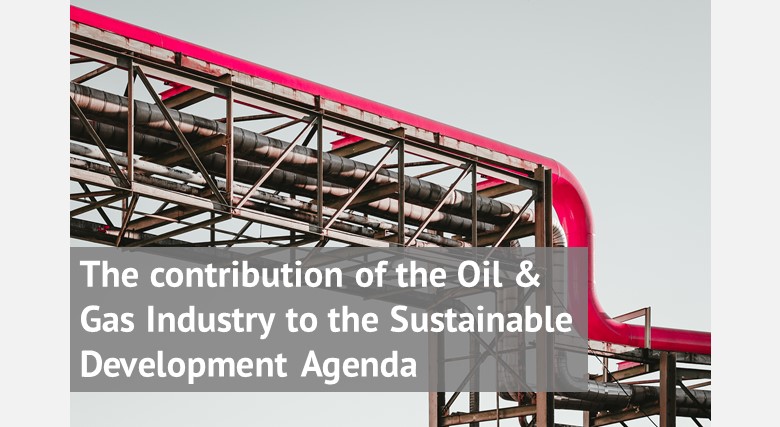Energy is the main driver of the global economy and production and since the 19th Industrial Revolution, countries have been using fossil fuels (coal, natural gas and oil) as the main sources for energy consumption. Today, oil accounts for around 40% of the world energy mix and gas for around 23%. These facts indicate that oil and gas have been key pillars of the global energy system and as such are drivers of economic and social development. Yet, the oil and gas industry has detrimental social and environmental impacts and production and use of oil and gas accounts for over half of global greenhouse gas emissions (50%) associated with energy consumption. Thus, the oil and gas industry is under massive pressure to support the realisation of the Sustainable Development Agenda and the achievement of the 17 SDGs.
How can the Oil & Gas industry engage with the SDGs?
The report Mapping the oil and gas industry to the Sustainable Development Goals: an Atlas, prepared by IPIECA (International Petroleum Industry Environmental Conservation Association), the United Nations Development Programme (UNDP) and the International Finance Corporation (IFC) emphasizes that “with careful planning and implementation, the oil and gas industry has the opportunity to contribute across all SDGs, either by enhancing its positive contributions or by avoiding or mitigating negative impacts” and provides steps how oil and gas companies can integrate SDGs in their core business practises “by incorporating them into their corporate systems, policies and processes”, including:
- Company policies, standards and management systems
- Reporting
- Project due diligence
- Risk and opportunity assessments and planning processes
- Dialogue and engagement with communities, governments and other stakeholders
- Research and development
Also, the report highlights the importance and value for oil and gas companies to collaborate with key stakeholders like governments, contractors and suppliers, local communities, development partners, institutional investors, insurers by implementing a variety of different approaches including formal partnerships, information sharing, foundations, trust and funds, etc. Also, the report presents the case studies and initiatives linked to each SDG showcasing how the companies contribute to the realization of the SDG agenda. For instance, Eni, the oil and gas company, by promoting the Green River Project (GRP) in Nigeria that has as its objective “to transfer technology through vocational guidance and training in order to increase food availability, multiply employment and earning opportunities and facilitate access to social services”, contributed to the SDG 2 (Zero hunger). Also, Total acquired an interest in two companies in Tanzania and Kenya that offer solar-powered energy solutions for rural areas with limited or no access to conventional energy grids. By investing in solar energy and bringing it to off-grid communities in these countries, the company supported the SDG 7 (Affordable and clean energy).
The industry progress so far
The areas of carbon dioxide (CO2) and climate change concerns are the industry’s “Achilles heel”. The CDP’s report Beyond the cycle: which oil and gas companies are ready for the low-carbon transition?, that ranks twenty-four of the largest and highest-impact publicly listed oil and gas companies on business readiness for a low-carbon transition, shows that European companies are the leaders in most key areas (setting climate-related targets, investing in low-carbon technologies).Only fifteen companies have set emissions reduction targets and five companies have officially supported the Task Force on Climate-related Financial Disclosures (TCFD). Moreover, it highlights a lack of disclosure by Chinese companies. Given that these twenty-four companies represent 31% of global oil and gas production and 11% of proved reserves, it is apparent that the oil and gas sector has not engaged enough in contributing to the Sustainable Development Agenda or addressing its most crucial areas of negative impacts.
Next steps
Oil and gas companies need to extend their current engagements and move beyond their social investments and corporate philanthropy approach. They urgently need to produce more solid and tangible results by fully integrating the principles of Sustainable Development agenda into their core strategy, operations and practices. But most import understand that their responsibility extends beyond spill management, soil remediation and…rebranding. Oil and gas companies are presented with a unique opportunity to foster economic and social development designed for a sustainable and prosperous future. If the current approach does not change and no reform of tactics is actualised, they are left in the mercy of investors, regulatory bodies and powerful interest groups which will continue to put massive pressure to change the current status quo.
Photo by Martin Adams on Unsplash

